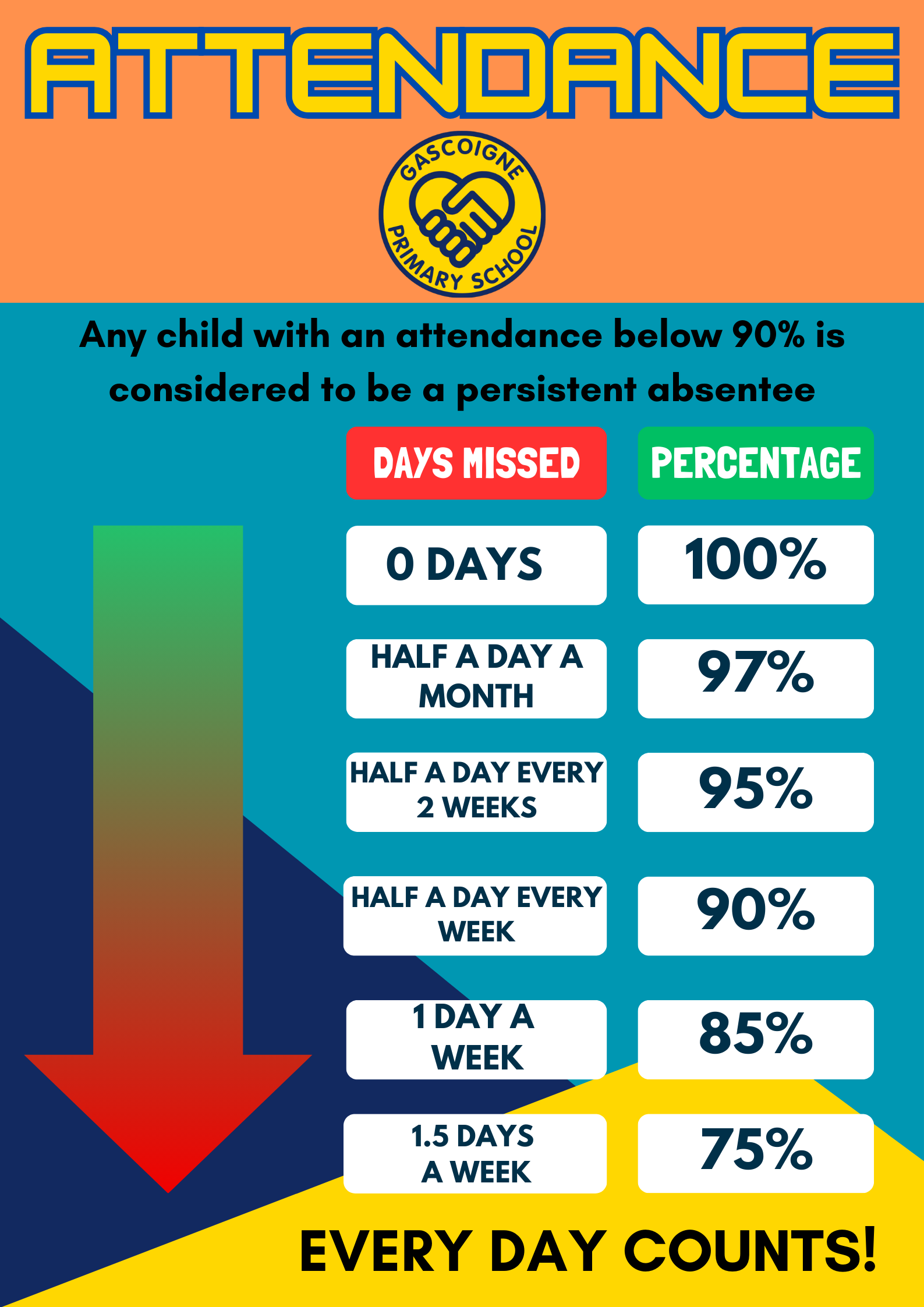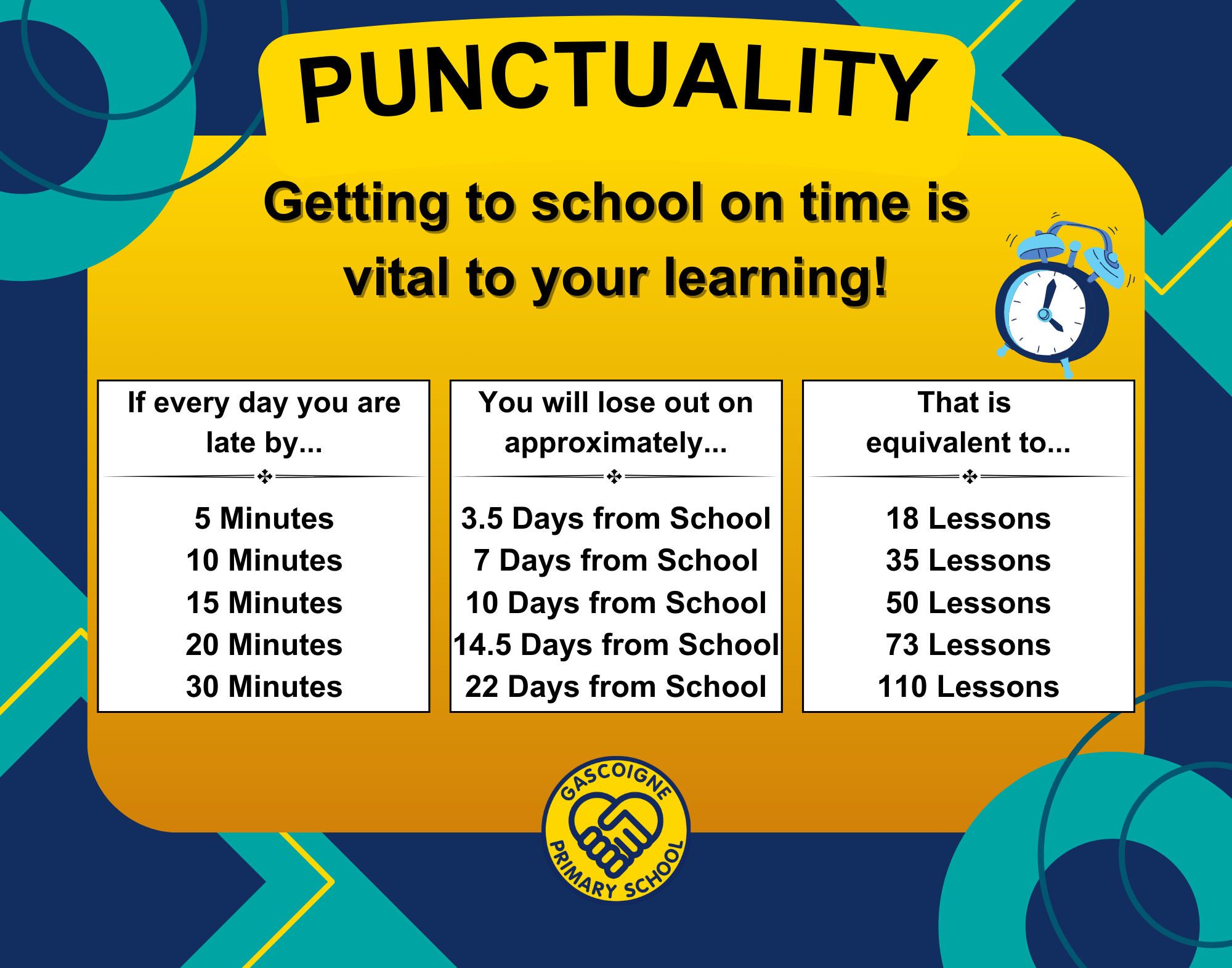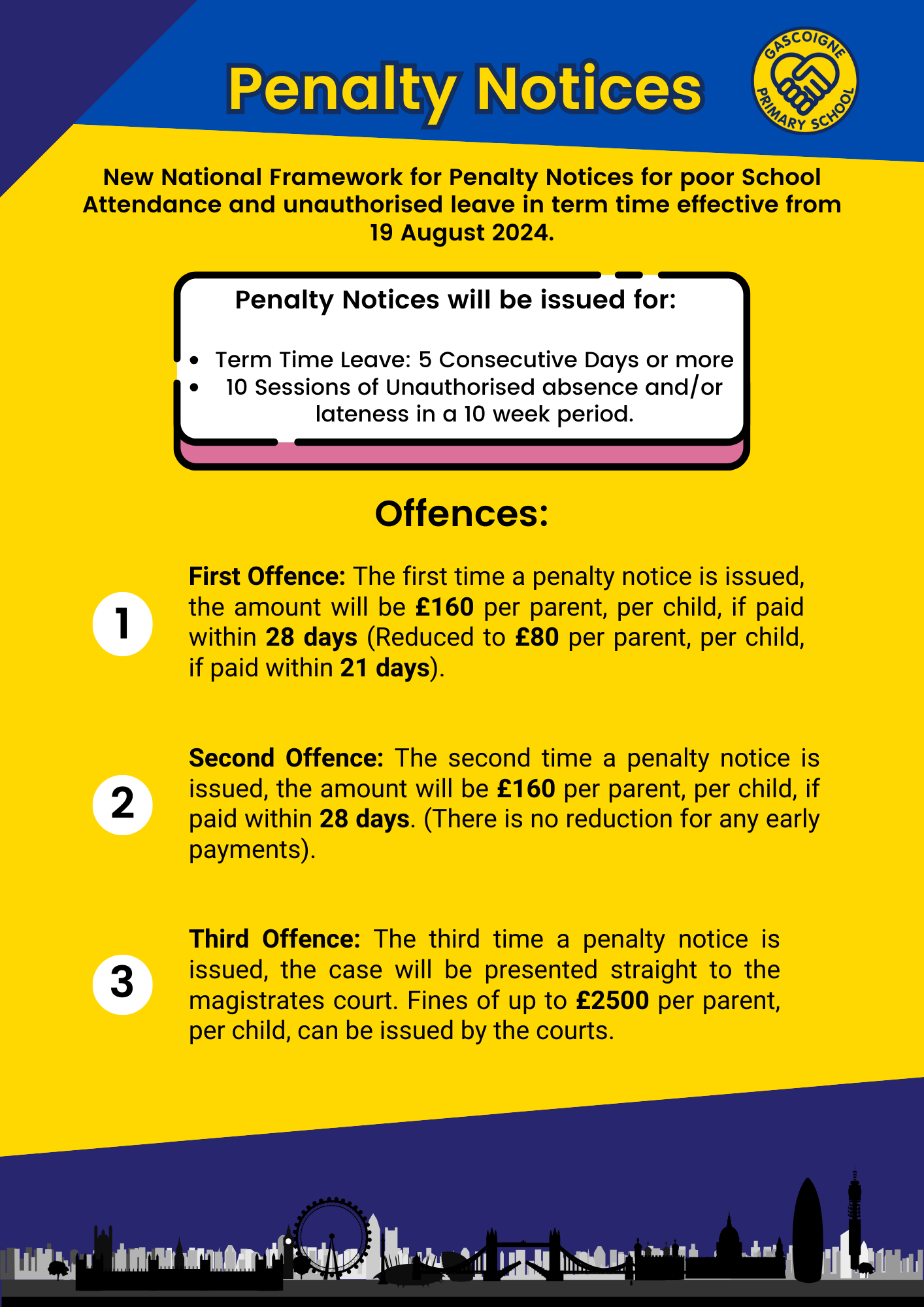Attendance
At Gascoigne Primary, we are committed to meeting our obligations with regard to school attendance through our whole-school culture and ethos that values good attendance, including:
- Promoting good attendance and punctuality;
- Reducing absence, including persistent (90% and below) and severe absence (50% and below);
- Ensuring every pupil has access to the full-time education to which they are entitled;
- Acting early to address patterns of absence;
- Building strong relationships with families to ensure pupils have the support in place to attend school.
- We will also promote and support punctuality in attending lessons.
For more information about the schools opening times, click the link below:


Legal Sanctions
The school or local authority can fine parents for the unauthorised absence of their child from school, where the child is of compulsory school age.

For more information, please view the letter attached below:
The following policies will have the full details on attendance:
- Arrival and Collection of Children
- Attendance and Punctuality
- Children Missing from Education
- LBBD Staged Approach to Improving Attendance
